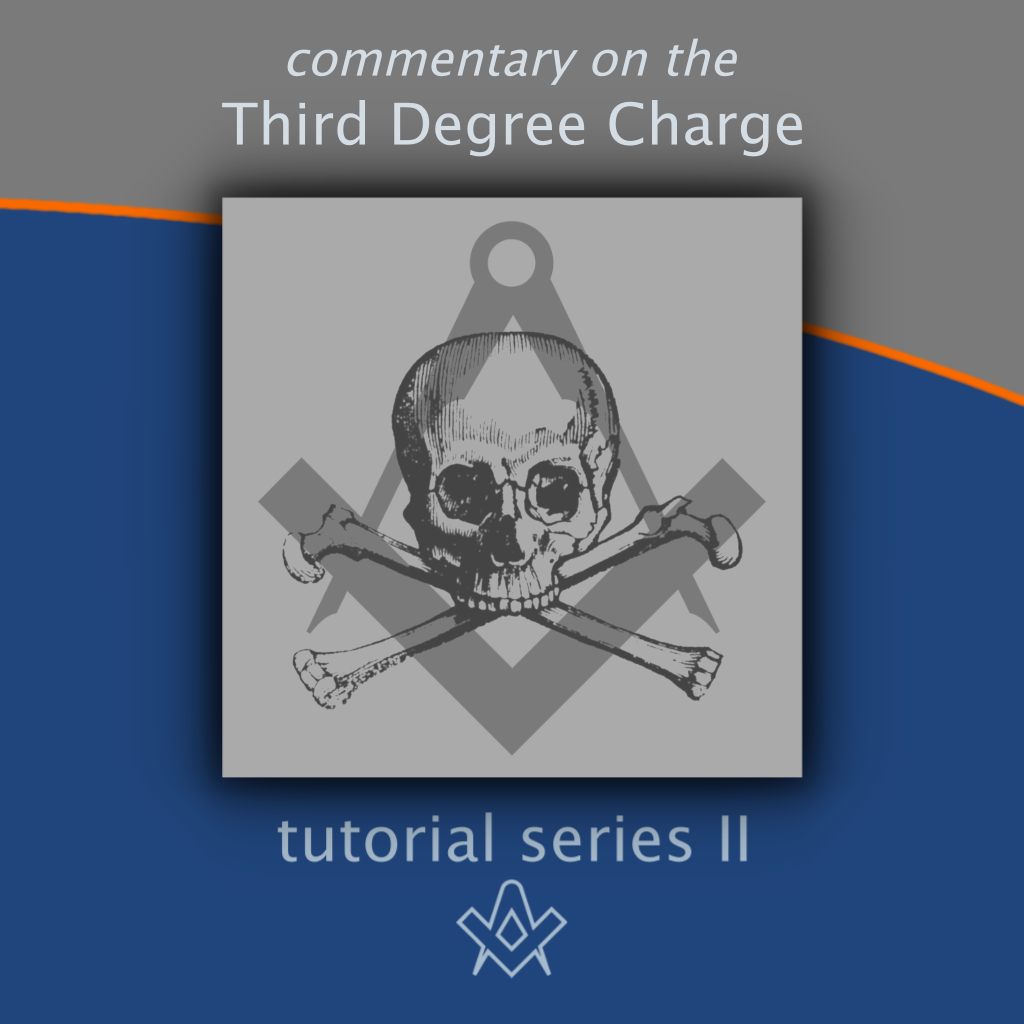Following on from the commentary on; the First Degree Charge and the Second Degree Charge, I now present to you my commentary on the Third Degree Charge.
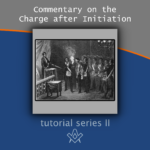
Commentary on the Charge after Initiation
A more detailed explanation in order for us to understand the Charge after Initiation
more….
In my first commentary, I wrote about how Freemasonry was born out of the medieval Stonemasons Guilds. How the apprentice would live in the Master’s house and learn, not only the skills of operative masonry but the values of family life and good citizenship in order to be respected both in the community and in the workplace. To be a moral man.

Commentary on the Second Degree Charge
In the second degree we learn about being an educated man. Skilful, not only in the Craft itself but also how to communicate and manage others. This Commentary looks at the second degree charge in detail.
more….
In the second degree we learn about being an educated man. Skilful, not only in the Craft itself but also how to manage others.
The Third Degree Charge invites the candidate to reflect on his life as both a ‘moral’ and ‘educated’ man, and to contemplate on what may be missing in his life. The ‘genuine secrets of a Master Mason’.
Video Presentation
Let me now beg you to observe that the Light of a Master Mason is darkness visible, serving only to express the gloom which rests on the prospect of futurity. It is that mysterious veil which the eye of human reason cannot penetrate, unless assisted by that Light which is from above.
What are, “the prospects of futurity”? Eternal Life? Eternal life refers to continued life after death as testified in the Apostles’ Creed, (Christian), “I believe …. the resurrection of the body, and life everlasting.” Referring to the second coming of Jesus and the resurrection of the dead. In the Synoptic Gospels and the Pauline Letters eternal life is regarded as a future experience when the ‘final judgement’ is reached. (Mark 10:30, Matthew 18: 8-9)
However, John 5:24, positions eternal life as a present possibility. For if you believe in the words of Jesus you have “passed from death to life.” Both are interesting analogies.
Yet even by this glimmering ray you might perceive, that you stand on the very brink of the grave into which you have just figuratively descended and which, when this transitory life shall have passed away, will receive you into its cold bosom. Let the emblems of mortality which lie before you lead you to contemplate on your inevitable destiny, and guide your reflections to that most interesting of all human studies, the knowledge of yourself.
‘Death’ is the inevitable destiny so this Charge invites the candidate to reflect on life; his life. Nelson Mandela said, “Death is inevitable. When a man has done what he considers to be his duty to his people and his country, he can rest in peace”.
In the first degree the candidate was asked to contemplate on the ‘Moral Man’. In the second degree, the ‘Educated Man’ and now the question is asked: “Does he (the candidate) have integrity and is he a ‘Man of Faith’?” It is not a simple ‘yes’ or ‘no’ answer. The candidate has to prove his worthiness to himself and to his God. His ‘Truth’. For actions speak louder than words.
Be careful to perform your allotted task while it is yet day. Continue to listen to the voice of Nature, which bears witness that even in this perishable frame resides a vital and immortal principle, which inspires a Holy confidence that the Lord of Life will enable you to trample the king of terrors beneath our feet, and lift our eyes to that great Morning Star, whose rising brings peace and salvation to the faithful and obedient of the human race.
This ‘Charge’ warns the candidate that he has a limited time on this earth in which to complete everything he wishes or needs to do. Do not waste time on irrelevances.
The purpose of life is ‘happiness’ and to spread that joy and happiness to others. His ‘Faith’ will guide him through all difficulties and dangers to achieve that goal, that purpose of life.
When the time comes, may the candidate finally ‘Rest in Peace’, for at his inevitable end his sleep will be for eternity. May it be a peaceful sleep in the knowledge that the obligations as a man of faith and as a Freemason have been fulfilled. “
![]()
Live respected, die regretted
I leave you with the poem ‘Desiderata’ for it encapsulates everything about the third degree Charge.
Desiderata
Go placidly amid the noise and the haste, and remember what peace there may be in silence. As far as possible, without surrender, be on good terms with all persons.
Speak your truth quietly and clearly; and listen to others, even the dull and ignorant; they too have their story.
Avoid loud and aggressive persons; they are vexations to the spirit. If you compare yourself with others, you may become vain and bitter, for there will be greater and lesser persons than yourself.
Enjoy your achievements as well as your plans. Keep interested in your own career, however humble; it is a real possession in the changing fortunes of time.
Exercise caution in your business affairs, for the world is full of trickery. But let this not blind you to what virtue there is; many persons strive for high ideals and everywhere life is full of heroism.
Be yourself. Especially do not feign affection. Neither be cynical about love, for in the face of all aridity and disenchantment, it is perennial as the grass.
Take kindly the counsel of the years, gracefully surrendering the things of youth.
Nurture strength of spirit to shield you in sudden misfortune. But do not distress yourself with dark imaginings. Many fears are born of fatigue and loneliness.
Beyond a wholesome discipline be gentle with yourself. You are a child of the universe no less than the trees and the stars; you have a right to be here.
And whether or not it is clear to you, no doubt the universe is unfolding as it should. Therefore be at peace with God, whatever you conceive him to be. And whatever your labours and aspirations, in the noisy confusion of life, keep peace in your soul. With all its sham, drudgery and broken dreams, it is still a beautiful world. Be cheerful. Strive to be happy.
Max Ehrmann © 1927.
Footnote
Bibliography
Bibliography.
‘The Authorised book of Quotations by Nelson Mandela’. Mandela Foundation. 2010.
The Poem ‘Desiderata’ – Max Ehrmann. 1927.
‘
The Hunger Games”. Suzanne Collins. 2008.
The Holy Bible. Mark 10:30, Matthew 18: 8-9; John 5:24
Ritual Book – Lodge of Union No. 38.
Article by: Stephen J. Goulding
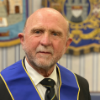
Stephen was initiated into Freemasonry in 1978 in Tylney Lodge No. 5856 (UGLE). He was Master in 1989 & 2004.
He was Master of the Lodge of Union 38 (UGLE) in 2018. He is also a PZ in the Holy Royal Arch and PM in the Mark Degree.
Stephen served 30 years in the Metropolitan Police Service (London, England) before going into education in 2000, where he became a college lecturer and a mentor for both the college and the University of Greenwich (London, England). Now retired, he teaches Tai Chi and Qigong in the community.
Facebook: Steve Goulding-Tai Chi West Sussex–Chi at Chi
Recent Articles: Tutorial Series II
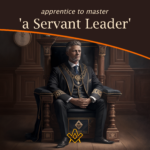 Apprentice to Master, “a Servant Leader”. Freemasonry is a learning platform used to improve a lifestyle which is morally, educationally and spiritually sound. To guide a person through life in order to be the best they can be. A Master, or ‘Servant Leader,’ develops those people in their care. They are someone who can guide others using the principles of Freemasonry - By Stephen J. Goulding |
 Commentary on the Third Degree Charge The Third Degree Charge invites the candidate to reflect on his life as both a ‘moral’ and ‘educated’ man, and to contemplate on what may be missing in his life. The ‘genuine secrets of a Master Mason’. |
 Commentary on the Second Degree Charge In the second degree we learn about being an educated man. Skilful, not only in the Craft itself but also how to communicate and manage others. This Commentary looks at the second degree charge in detail. |
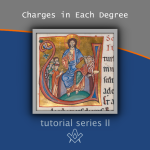 The ‘Old Charges’ have come down to us, containing the rules and regulations by which Lodges should be run and the moral and social standards to which each Lodge member should adhere. |
 Steps to the Making of a Master. The symbolism of each step of the winding staircase is to continue your personal development throughout your life, right up to your last breath in this world. |
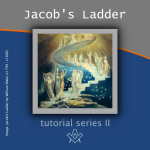 On the First Degree tracing board the most dominant feature is Jacob’s Ladder stretching from Earth to Heaven. Being straight, it is the shortest and quickest way to reach heaven, and being straight you can see the end goal. |
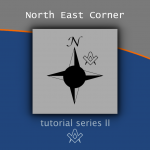 The North East Corner: A Lesson on Charity The ritual of the North East corner is a powerful piece of teaching. Let us examine that piece of ritual more closely; the lesson on charity. |
 When we look at the ritual book the deacons are told to ‘perambulate’ with the candidate. So what does this really mean? |
 The taking of a ‘Vow of Fidelity’. Oaths, Vows and Covenants |
 Morality veiled in allegory and illustrated by symbols A phrase that immediately comes to mind when describing Freemasonry – Morality veiled in allegory and illustrated by symbols. Let us have a look at what this phrase actually means. |
 Commentary on the Charge after Initiation A more detailed explanation in order for us to understand the Charge after Initiation |
masonic knowledge
to be a better citizen of the world
share the square with two brothers

click image to open email app on mobile device


